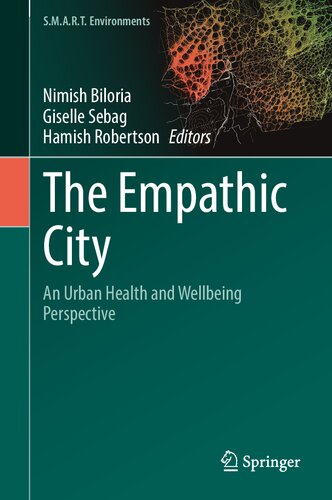

Most ebook files are in PDF format, so you can easily read them using various software such as Foxit Reader or directly on the Google Chrome browser.
Some ebook files are released by publishers in other formats such as .awz, .mobi, .epub, .fb2, etc. You may need to install specific software to read these formats on mobile/PC, such as Calibre.
Please read the tutorial at this link: https://ebookbell.com/faq
We offer FREE conversion to the popular formats you request; however, this may take some time. Therefore, right after payment, please email us, and we will try to provide the service as quickly as possible.
For some exceptional file formats or broken links (if any), please refrain from opening any disputes. Instead, email us first, and we will try to assist within a maximum of 6 hours.
EbookBell Team

0.0
0 reviewsThis book has a primary focus on inclusions for solutions to problems and not just more on the nature of the current and emerging problems that most other competing titles present. The book is also a true global representation of challenges and opportunities that have been encountered, addressed, and critiqued from a wide variety of contributors rather than academicians per se. In doing so, rather than focusing on techno-centric prowess and associated case studies of the west (as is the case in most competing titles), the book also equally emphasizes upon the vulnerabilities and mitigating solutions being developed and tested in the under-developed and developing nations. Besides this, the book also acquires an ‘Equity’ oriented focus and hints upon sustainable, inclusive modes of shaping our built environment throughout the contributing chapters. The book is also unique in the way it combines the chosen themes to provide a holistic coverage of the broader determinants of urban health and wellbeing, thus being better positioned to address SDG3 within one compact volume. The book also differs from a typical conference proceeding or a non-peer reviewed book since the book’s highly theme specific approach is curated by a scientific peer review committee to carefully maintain diversity of contributions to the book.
Cities have a profound power to support or hinder human health and wellbeing in countless ways. Achieving greater health equity has emerged in recent years as a key priority and consideration when designing cities to promote health and wellbeing, although there is a dearth of evidence and practical examples of research translation to guide cities and communities. The book accordingly exemplifies a pluralistic approach to achieving urban health equity which recognises and addresses critical aspects of geography, age, race, background, socioeconomic status, disability, gender etc. With interdisciplinary science clearly pointing to the role of the neighbourhood environment as one of the most important health determinants, this book will undoubtedly lead the next generation of urban health actors to build contextually responsive, equitable, empathic cities to benefit residents around the world. The book, rather than being focused purely on academic propositions for building equitable cities, offers a unique multi-stakeholder perspective by collaborating with the International Society for Urban Health’s 18th International Conference on Urban Health. This unique collaboration allows access to hundreds of scientists, architects, urbanists, multilaterals, policymakers, non-profit leaders, and grassroots organizers. The book captures the voices and concerns of such diverse cross-sectoral professionals and showcases findings that turn evidence into action and impact in communities around the world.
Chapter 14 is available open access under a Creative Commons Attribution 4.0 International License via link.springer.com.